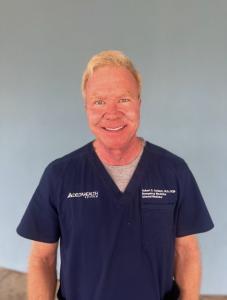Emergency Medicine vs. Internal Medicine: Dr. Robert Corkern Breaks Down the Differences
Emergency Medicine vs. Internal Medicine: Dr. Robert Corkern Breaks Down the Differences
Blog Article

As it pertains to healthcare, many people frequently confuse crisis medicine with central medicine. Equally are crucial offices of medicine, but they offer very different roles in patient care. Dr Robert Corkern Mississippi, a famous medical specialist, describes the important thing differences between those two specialties, shedding mild on their particular stresses and how each contributes to individual health. Knowledge the distinction between crisis medicine and internal medication might help patients greater navigate their healthcare needs and produce educated decisions.
The Emphasis of Emergency Medication
Emergency medication is designed to offer quick, acute take care of people experiencing urgent or lethal conditions. Disaster physicians function in hospitals' disaster sectors (EDs), wherever they are usually the first point of contact for persons encountering significant accidents, shots, center attacks, or other medical emergencies. Dr. Corkern emphasizes that emergency medicine is all about stabilization and rapid decision-making. Crisis physicians are experienced to deal with a wide variety of medical situations, usually without having reveal medical record of the in-patient, and must produce fast judgments centered on confined information.
The primary goal of disaster medication is to avoid more harm, stabilize the in-patient, and initiate the appropriate interventions. From injury attention to handling center episodes or strokes, disaster physicians are specialists in controlling acute signs and providing life-saving remedies in high-pressure environments.
The Position of Internal Medicine
On the other hand, internal medication is targeted on detecting and handling chronic conditions and problems that influence people, such as for instance diabetes, hypertension, and center disease. Central medication specialists, or internists, assist patients over an extended time, providing detailed care and elimination strategies. Dr. Corkern explains that inner medication is largely worried about the whole-body administration of non-emergency medical issues. Internists often function as main attention doctors, handling routine check-ups, managing constant remedies, and coordinating care for individuals with complicated, long-term health issues.
While emergency physicians address immediate problems, internists take a more holistic and long-term approach to patient health. They frequently function directly with specialists in places like cardiology, pulmonology, and nephrology to handle chronic situations and make certain that individuals obtain coordinated take care of numerous health concerns.
Instruction and Approach to Attention
Dr. Corkern shows the differences in the training needed for equally fields. Emergency medicine requires physicians to be ready for a broad spectrum of situations which could require quick, life-saving interventions. Disaster health practitioners are trained to manage stress, important infection, and intense exacerbations of persistent conditions. This education involves huge concentrate on acute care and sophisticated life-saving techniques, frequently in high-stress environments.
On another hand, central medicine physicians undergo intensive education in the reduction, examination, and treatment of chronic conditions. They focus on providing long-term care, usually managing a patient's medical record and corresponding with other specialists. The internist's strategy is patient-centered, with a focus on long-term wellness preservation and disease prevention.
When to Find Crisis Medication or Internal Medication
Understanding when to seek crisis medicine versus inner medication could make all of the big difference in the pace and form of treatment someone receives. If you're experiencing a medical disaster, such as for example extreme chest suffering, difficulty breathing, or sudden lack of consciousness, the emergency room is the best spot to go. However, for continuing health issues, persistent disease management, or general health preservation, an interior medicine specialist is normally the most effective level of contact.
Realization:
Equally disaster medication and central medication enjoy crucial jobs in patient care, but their approaches, concentration areas, and teaching change significantly. Dr Robert Corkern's explanation provides understanding on what these specialties purpose and when each is many relevant. By knowledge the distinctions, people can better steer their healthcare wants and ensure they are seeking the best type of treatment at the best time. Whether experiencing an urgent situation or controlling a chronic condition, both specialists are essential in maintaining and increasing health.
Report this page